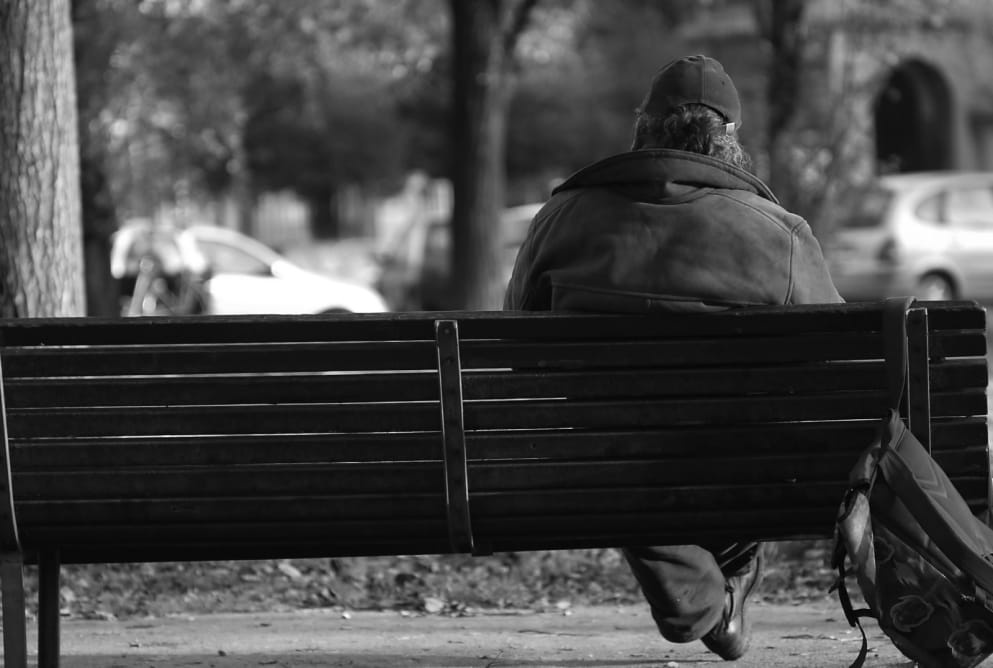Recently, we spoke about common myths around homelessness. Like myths, our assumptions have a direct impact on our understanding of homelessness.
These assumptions are often formed by what we see on the news and in the media. They can reinforce negative stereotypes. And they impact our attitudes towards ending homelessness.
Our assumptions limit our understanding of a complex issue. In this
blog post, we’ll explore the five most common assumptions we need to stop
making about homelessness. And, why these assumptions prevent us from coming up
with effective solutions to homelessness.
The assumptions we need to stop.
Let’s look at five assumptions often made about homelessness. These assumptions impact our understanding of homelessness, the key issues those who are homeless face, and the solutions needed to end homelessness.
1. Language doesn’t matter.
Language is powerful. And the way we speak about homelessness matters. People experiencing homelessness are only defined by their homeless situation. They’re labelled a “homeless person”, “rough sleeper” or “beggar”. But, like all people, everyone is unique. We’ve supported people who are brothers, sisters, mothers, fathers, nurses, business people, skilled workers, poets and artists.
Charities are moving away from labels like
“homeless person” or “rough sleeper”. Instead, they’re describing the person
first. This language doesn’t label a person experiencing homelessness as
inherently different or other. It doesn’t define that person only by their
homeless situation. And this is important. The language we use can be
isolating. In a survey of residents in their services, the Salvation Army found
that 68% of residents felt the public saw their homelessness, rather than them
as a person.
2. The majority of people who experience homelessness are men.
If you were asked to picture someone experiencing homelessness, would you think of a man? It’s an assumption backed by the pictures we see in the news and on TV. But, most homeless organisations believe there are more women than men who are hidden and homeless.
Women experiencing homelessness are more
likely to do anything they can to avoid the dangers of the streets. We may not see as many women, but both men and women are equally at
risk of homelessness.
3. Homelessness is an individual’s problem.
A common assumption is that a person’s homelessness is their own fault. Research by the Salvation Army found that, overwhelmingly, the public perceive the causes and consequences of homelessness as the fault of the individual, due to their own bad choices.
If we assume this, we ignore social
problems such as poverty and inequality, and national policies affecting
employment and housing. Homelessness is not a personal choice. It's a social
problem. With the right policies in place, homelessness can and should be
preventable.
4. There’s enough support out there.
We now know that homelessness is a social problem, and the right policies are needed to end it. Individual acts of kindness, like giving food or a blanket, simply aren’t enough. It’s why we focus on providing unlimited emotional and practical support.
We know supporting someone to break the
cycle of homelessness can take a long time. Services are often difficult to
navigate and not designed for the people experiencing homelessness. And, the
policies needed, such as an investment in social housing, are often not in
place.
5. All people experiencing homelessness are addicts.
More than a quarter of us believe the main cause of homelessness is drug or alcohol addiction. This assumption is problematic. It blames the person for their homeless situation. And, it doesn’t consider bigger social problems.
This assumption sees addiction as a choice.
People can choose to drink, gamble or take substances. It's simply a bad
choice. However, drug and alcohol dependencies, far from being a cause, are
often a result of homelessness.
What we assume about homelessness matters. Our assumptions often push
the blame of a person’s homeless situation onto the individual themselves. When
we do that, we ignore bigger social problems and the need for policies which
can help end homelessness.
We know that due to recent changes in policy, homelessness is going to
rise. The end of the end of the eviction ban, furlough and the £20 Universal
Credit uplift are expected to affect people across West Yorkshire. Can you help
support people experiencing homelessness this winter? Join us on 19th November
for Simon’s Sleepover. Sleep anywhere but your bed for one night and support
people experiencing homelessness. Join
Simon’s Sleepover today.
